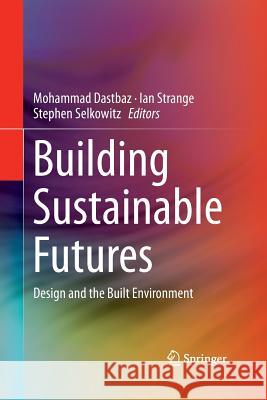Building Sustainable Futures: Design and the Built Environment » książka
topmenu
Building Sustainable Futures: Design and the Built Environment
ISBN-13: 9783319362267 / Angielski / Miękka / 2016 / 351 str.
Kategorie:
Kategorie BISAC:
Wydawca:
Springer
Język:
Angielski
ISBN-13:
9783319362267
Rok wydania:
2016
Wydanie:
Softcover Repri
Ilość stron:
351
Waga:
0.50 kg
Wymiary:
23.39 x 15.6 x 1.91
Oprawa:
Miękka
Wolumenów:
01











